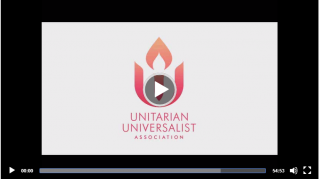The Unique Finances of Your Minister

Understanding Ministerial Compensation
You’ve probably heard that there are special tax rules for ministers. Most church leaders don’t need to be experts on ministerial compensation, but it’s important to understand the basics of how payroll and taxes for the minister differ from other employees.
Your Minister is an Employee, Not an Independent Contractor
A congregational minister may be full-time or part-time. Called or hired. Solo, lead, associate, or assistant. Regardless, they are an employee. While ministers who simply provide occasional pulpit supply can be classified as independent contractors (and issued a 1099), any minister with ongoing responsibilities is an employee and should receive a W-2, just like other staff.
Here’s an important difference:
Ministers are treated as self-employed for the purposes of Social Security and Medicare. This means that you cannot remit FICA for the minister as you do for other employees. Instead, the minister pays self-employment taxes (SECA) when they do their own quarterly tax filings.* Your minister is only “self-employed” in this single regard; otherwise, they are an employee of your congregation.
Other sources of confusion:
As if this dual tax status weren’t complicated enough, there are at least two other sources of confusion:
- The minister has a “contract” – their ministerial agreement (PDF). Some of your other staff may have employment agreements, as well. Please don’t let the fact that someone has a “contract” lead you to believe that they are an independent contractor.
- Your congregation may have what’s known as a “contract ministry.” (See the Transitional Ministry Handbook (PDF), page 48, for an overview of Contract Ministry.) Once again, the word “contract” notwithstanding, a contract minister is an employee, not an independent contractor.
Whether a worker is an employee or an independent contractor is a critical legal distinction. If you classify any worker as an independent contractor who should be an employee, you are denying them the opportunity to participate in employee benefit plans – and you could be cited for tax evasion, putting your tax-exempt status at risk.
The resources on our Worker Classification page can help you classify your workers correctly.
Salary and Benefit Recommendations
Learn about recommended salaries and benefits for your minister and other staff.
FICA (Social Security)
Because ministers pay the full 15.3% of salary (including housing) for Social Security/Medicare themselves, rather than splitting the amount with their employer, UUA Benefit Recommendations include a self-employment tax offset, or “in lieu of FICA,” as part of the minister’s compensation. For questions, contact the UUA Compensation Team, comp@uua.org.
Additional Resources
Clergy Tax Status, Explained
An overview of the special tax status of ministers, the housing allowance and how Social Security and Medicare payments work.
Housing Allowance for Ministers
The Ministerial Housing Allowance (also know as the parsonage allowance) enables ministers to exclude some of their salary from certain taxes. For most active and retired ministers, it is their most important tax benefit.
Learn More About the Clergy Housing Allowance
Negotiating an Agreement: Key Considerations for Ministers
Recommendations and reminders are provided in order to support you in having meaningful, fruitful conversations with any congregation you might consider serving. We want to help you maximize your chances of negotiating an offer that you feel good about, with terms that serve you well throughout your ministry.
Have Meaningful Conversations About Agreements
Ministerial Compensation 101
Need an abbreviated version of the materials in this section? Here is a single webpage for folks who don’t need to get into the details.




